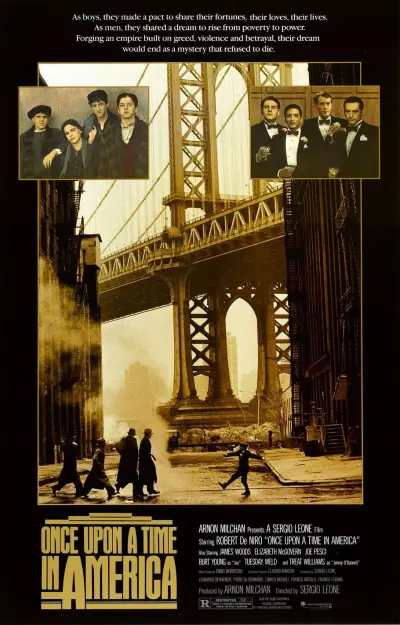
"Once Upon a Time in America," helmed by Sergio Leone, is an intricate epic intertwining themes of friendship, betrayal, and the passage of time. Set against America's Prohibition era, it deeply explores the lives of Jewish gangsters in New York City.
The story commences in 1933, introducing a world-weary David "Noodles" Aaronson, haunted by the death of his friends and a violent past. This opening sequence firmly establishes the film’s exploration of darker themes such as greed, power, and moral corruption.
Flashing back to 1918, we witness Noodles and his friends as youths in Manhattan's Lower East Side. Their early experiences under local gangsters lay the groundwork for their descent into organized crime. The relationship between Noodles and Max is a central theme, evolving from a close friendship to a tragic conclusion.
As Prohibition heightens, the gang's criminal endeavors expand. The film delves into Noodles' unrequited love for Deborah and the group's internal conflicts, juxtaposing their rise in the underworld with the severe consequences of their actions.
In the post-Prohibition era, the narrative delves deeper into Noodles' complex character and his strained relations within the gang. Here, the film blurs the lines between heroism and villainy, challenging the viewer's perception of its characters.
The film culminates in 1968, where an older Noodles faces the long-avoided truths of his past. He uncovers a labyrinth of deception and betrayal, particularly in his relationship with Max, who has reinvented himself as a corrupt politician.
"Once Upon a Time in America" transcends the gangster film genre, serving as a profound reflection on time, memory, and the consequences of a life in crime. Its non-linear narrative, spanning decades, mirrors the fragmented recollections of its protagonist. This film remains a notable work in the crime genre, renowned for its depth, complex themes, and Leone's exceptional direction.

